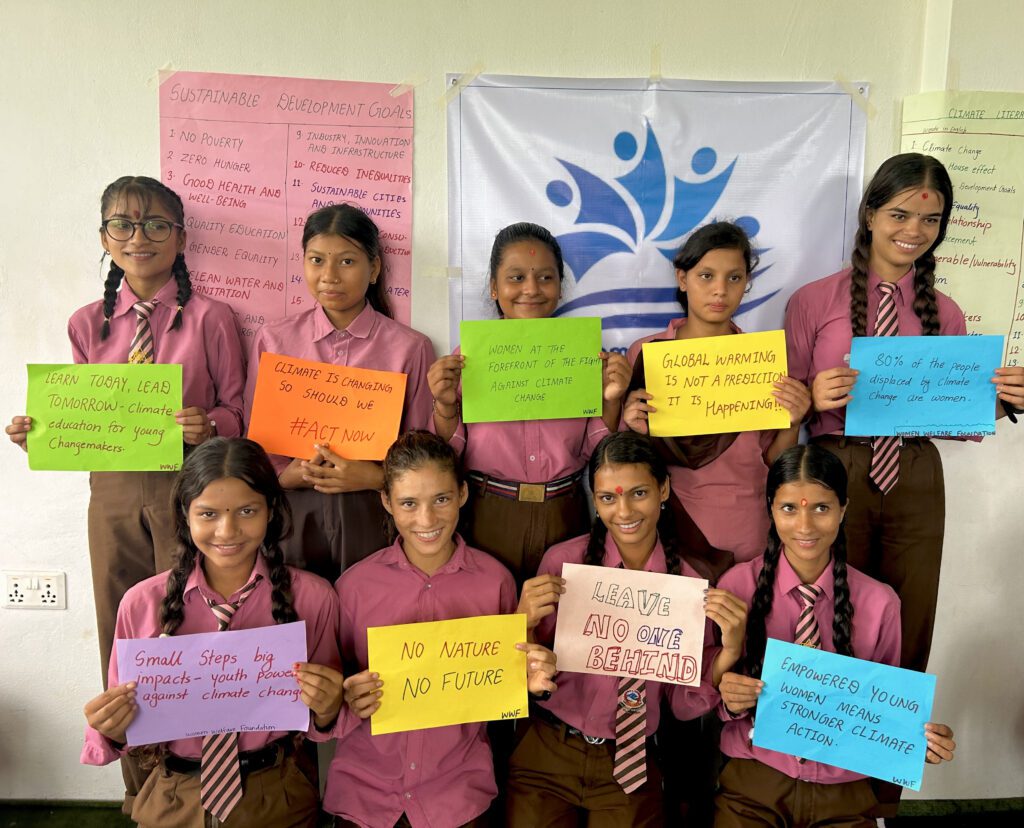HOW TO COUNTER THE FAR RIGHT - IT'S NOT TOO LATE
How to stop the far right
The far right isn’t coming. It’s here. Legislative chambers, school boards, social media algorithms, mainstream news.
Far-right ideology has moved from the fringes to the centre of political discourse globally. If you’re reading this for reassurance or a tidy five-step plan, look elsewhere. What I can offer is honesty about where we are, clarity about what works, and a roadmap grounded in strategy and lived reality.
This isn’t about stopping an abstract threat. It’s about countering a coordinated movement that’s spent decades building power while progressives have been arguing about the right language in internal meetings.
Who are the far right?
Before we can counter the far right effectively, we need brutal honesty about what it is and why it’s gaining ground.
The far right isn’t a monolith. It’s a network of movements, from organised fascist groups to right-wing populists. What unites them? A worldview built on hierarchy, exclusion, and the premise that some people inherently deserve more rights, safety, and belonging than others.
They’ve been winning because they understand something progressives often miss: people don’t just want policies. They want belonging, identity, and a story about where they fit in the world. The far right offers simple answers to complex anxieties. They name enemies. They promise restoration of a mythical past. They give people someone to blame.
The mainstream left has responded with fact-checks, policy papers, and lectures about why people’s concerns are misplaced. That’s not movement building. That’s not even good communication.
The far right has also benefited from decades of grassroots organising that progressives have largely ignored or dismissed. They’ve built alternative media ecosystems, taken over local political structures, and created communities that meet real human needs, even if those communities are ultimately built on exclusion and hate.
How not to stop the far right
Let’s start with what we need to abandon. Too many well-intentioned people are still investing energy in strategies that have demonstrably failed.
Debating fascists doesn’t defeat fascism. Every time we platform far-right figures in the name of “hearing all sides,” we legitimise and normalise extreme right views and give them access to audiences they couldn’t reach otherwise. Hate speech doesn’t lose in debate, it metastasises.
Waiting for institutions to save us is a losing game. Courts, governments, and establishment parties have repeatedly proven they will compromise with the far right when it serves their interests. Institutional power is important, but it’s not sufficient, and it’s often too slow.
Focusing solely on the most extreme elements lets the mainstream right off the hook. When we only call out the obvious fascists, we miss how mainstream conservatives provide cover, resources, and pathways to power for far-right movements. The pipeline from “respectable” right-wing politics to outright fascism is well-established and deliberately maintained.
Shame and ridicule rarely work. Mocking far-right supporters might feel satisfying, but it typically reinforces their sense of persecution and strengthens in-group bonds. Worse, it can drive people deeper into far-right communities where they feel understood.
Isolated individual actions won’t cut it. Posting on social media, signing petitions, or attending the occasional march are fine. Without strategic coordination and sustained organising, though, they’re performative rather than transformative.
Stopping the far right – What is working?
Countering the far right requires operating on multiple levels simultaneously. No single tactic will suffice. We need a coordinated approach that addresses immediate threats while building long-term power.
Build alternative communities and belonging
The far right recruits by offering community, identity, and purpose. We need to offer something better: communities built on solidarity rather than exclusion, identities that expand rather than contract, and purpose rooted in collective liberation.
This means creating spaces where people can bring their whole selves, where their material needs are met, and where they’re genuinely seen and valued. Mutual aid networks, community assemblies, workers’ cooperatives, and neighbourhood organising all serve this function. It’s not about tactics, it’s about building connections.
When people have authentic community, when they feel genuinely connected and supported, far-right narratives lose their appeal. Loneliness and isolation are among the far right’s most effective recruitment tools. We need to make those tools obsolete.
Address material conditions and economic anxiety
Economic precarity doesn’t automatically create fascists, but it does create conditions where far-right narratives can flourish. When people are struggling, when they feel the system isn’t working for them, they’re more susceptible to simple explanations and scapegoating.
This means fighting for material improvements in people’s lives: housing, healthcare, living wages, food security. It means building worker power and challenging the concentration of wealth. It means demonstrating that progressive movements actually deliver tangible benefits.
Progressives often talk about economic justice in abstract terms while the far right speaks directly to people’s immediate fears and frustrations. We need to be the ones solving problems in people’s lives, not just theorising about solutions.
Disrupt far-right organising directly
Sometimes the answer is straightforward: make it harder for fascists to organise. This includes monitoring and exposing far-right networks and their connections to mainstream institutions, pressuring venues and platforms to deny services to organised hate groups, showing up to counter far-right demonstrations and making it clear they’re not welcome, supporting deplatforming efforts that remove far-right content from major platforms, and investigating funding sources for far-right organisations.
This work is often unglamorous and sometimes risky, but it’s essential. Far-right movements depend on being able to organise openly. When we make that difficult, we limit their growth.
Inoculate communities against far-right narratives
Prevention is more effective than intervention. This means doing the educational and cultural work that helps people recognise and resist far-right rhetoric before they’re drawn in.
In practice, this looks like media literacy education that helps people identify manipulation and propaganda, creating cultural content that tells compelling progressive stories, having conversations with family and friends who might be susceptible to far-right ideas, building critical thinking skills (particularly among young people), and offering historical context that exposes the patterns and tactics of fascism.
The key is to do this work before people are fully radicalised. Once someone is deep in far-right ideology, reaching them becomes exponentially more difficult.
Win institutional power (but don’t stop there)
We need people in positions of formal power who will actively resist the far right, not accommodate it. This means running and supporting candidates who will take the threat seriously, calling on existing officials to stop treating fascism as just another political viewpoint.
But institutional power alone isn’t enough. Institutions are conservative by nature, they resist change and often protect the status quo. We need movements powerful enough to push institutions to act, and to build alternatives when they won’t.
Build broad coalitions without compromising principles
Stopping the far right requires bringing together diverse groups with different priorities and perspectives. This is hard work, but it’s necessary.
Coalition building doesn’t mean papering over disagreements or asking marginalised groups to compromise their safety. It means finding common ground on specific goals while respecting autonomy and difference.
The most effective anti-fascist movements have always been diverse, bringing together labour unions, faith communities, racial justice organisations, LGBTQ+ groups, immigrant rights networks, and more. When we fragment, we weaken. When we coordinate, we multiply our power.
Practical steps you can take now
Get organised locally. Join or start groups working on progressive issues in your community. Whether it’s tenant organising, mutual aid, or local political campaigns, being part of organised collective action is fundamental.
Build skills. Learn community organising, de-escalation, digital security, first aid, media production, or whatever skills your movement needs. Effective resistance requires capacity.
Support front-line organisers. Many people doing the most important work against the far right receive minimal support. Find organisations led by those most targeted (immigrants, Muslims, LGBTQ+ people, people of colour) and resource them.
Have difficult conversations. Talk with people in your life who might be drawn to far-right ideas. Do it with patience and strategic intent, not just moral outrage. Listen to what they’re actually worried about and offer alternatives.
Document and expose. Pay attention to what’s happening locally. Document far-right activity. Share information with trusted networks. Exposure often limits what fascists can do openly.
Protect vulnerable people. Create safety networks. Offer practical support to those most targeted by the far right. Show up when people are threatened.
Disrupt the pipeline. Challenge gateway ideologies and “respectable” conservative positions that feed people into far-right movements. Don’t wait until someone’s a full fascist to push back.
Create alternative narratives. Produce culture, art, media, and stories that offer compelling progressive visions. People need something to believe in, not just something to oppose.
For more ideas, check out the excellent Fighting the Far Right toolkit from The New Organising Conference
The long game
This isn’t a problem we’ll solve in an election cycle or even a decade. The far right has been building power for generations. Countering it effectively means committing to long-term movement building.
That doesn’t mean we ignore urgent threats. It means we respond to immediate crises while simultaneously building the lasting power needed to prevent future crises.
This requires patient, sustained organising. It means building institutions that will outlast any individual campaign. It means developing leadership broadly rather than depending on charismatic individuals. It means creating resilient networks that can adapt to changing conditions.
The far right understands this. They think generationally. They invest in building power even when they’re losing in the moment. Progressives need to match that long-term strategic vision.
Why hope isn’t optional
Fighting the far right is exhausting. The threat is real, the odds often feel overwhelming, and burnout is rampant among those doing this work.
But here’s what I’ve learned: hope isn’t naive optimism or denial of how bad things are. Hope is a discipline. It’s the practice of seeing possibility and acting on it even when outcomes aren’t guaranteed.
Every successful movement against fascism in history was built by people who had every reason to despair but organised anyway. They didn’t win because victory was inevitable. They won because they made it possible through sustained, strategic action.
We have advantages previous generations didn’t. We have tools for communication and coordination they couldn’t imagine. We have diverse movements with deep experience. We have young people who refuse to accept a fascist future as inevitable.
What we need now is the courage to act boldly and strategically, and the commitment to keep going even when it’s hard.
This is our work
Stopping the far right isn’t someone else’s job. It’s not something we can delegate to politicians or wait for institutions to handle. It’s work that requires all of us, using our particular skills and positions and contexts.
Some of us will do public-facing work. Others will build infrastructure behind the scenes. Some will fight in institutional spaces. Others will create alternatives outside them. All of it matters. All of it’s necessary.
The far right is organised, strategic, and committed. They’re playing to win, and they’re willing to do the work. We need to match that commitment not with hate, but with fierce, strategic love for the world we’re trying to build.
This is the work. Not next year. Not after we’ve figured everything out. Now.
What will you do?

